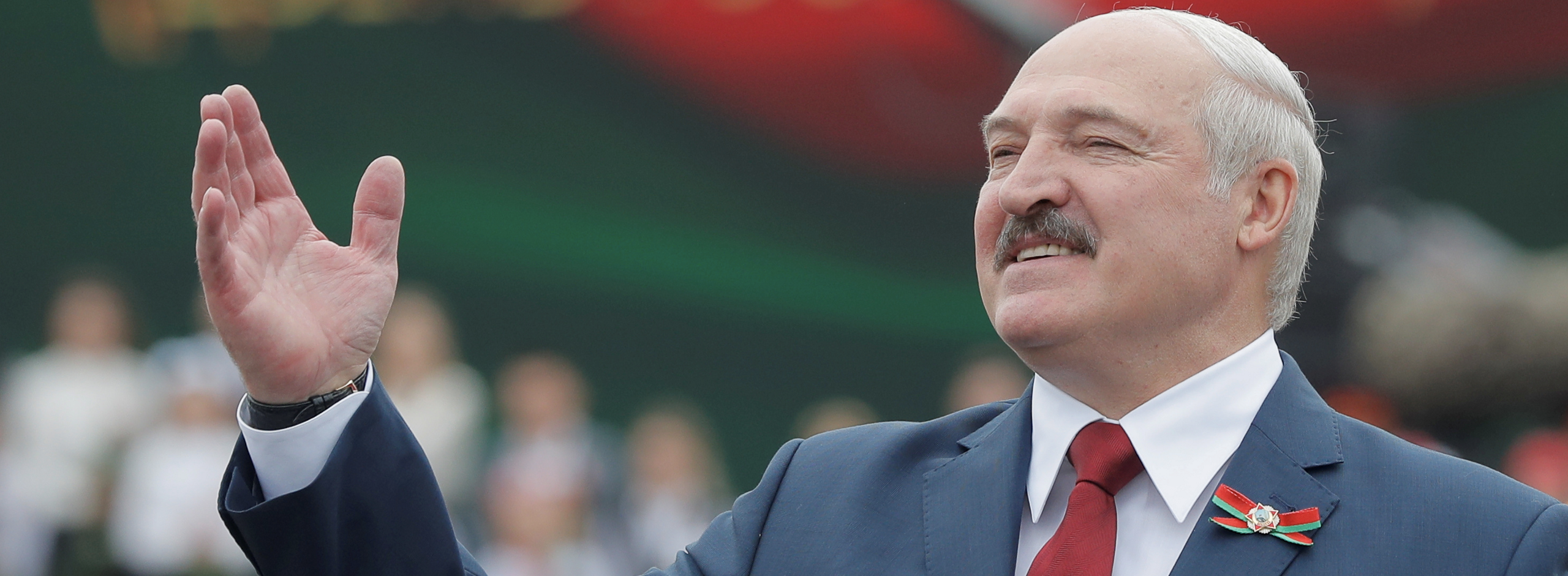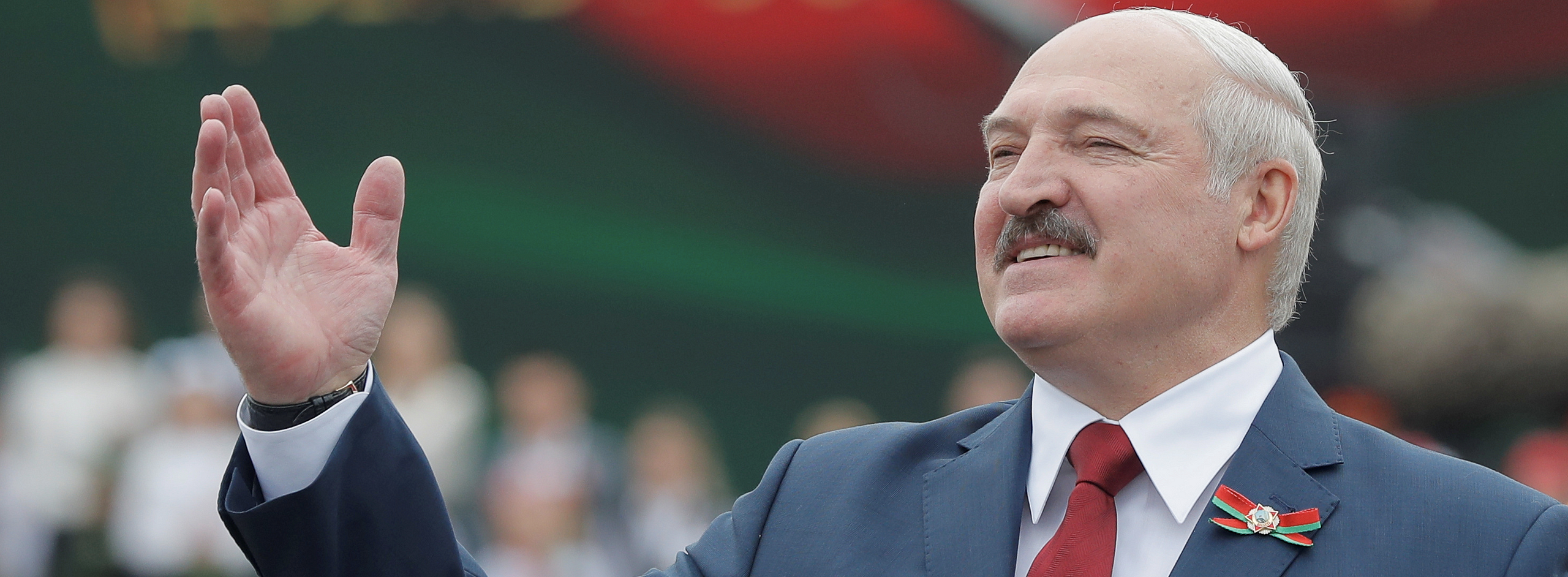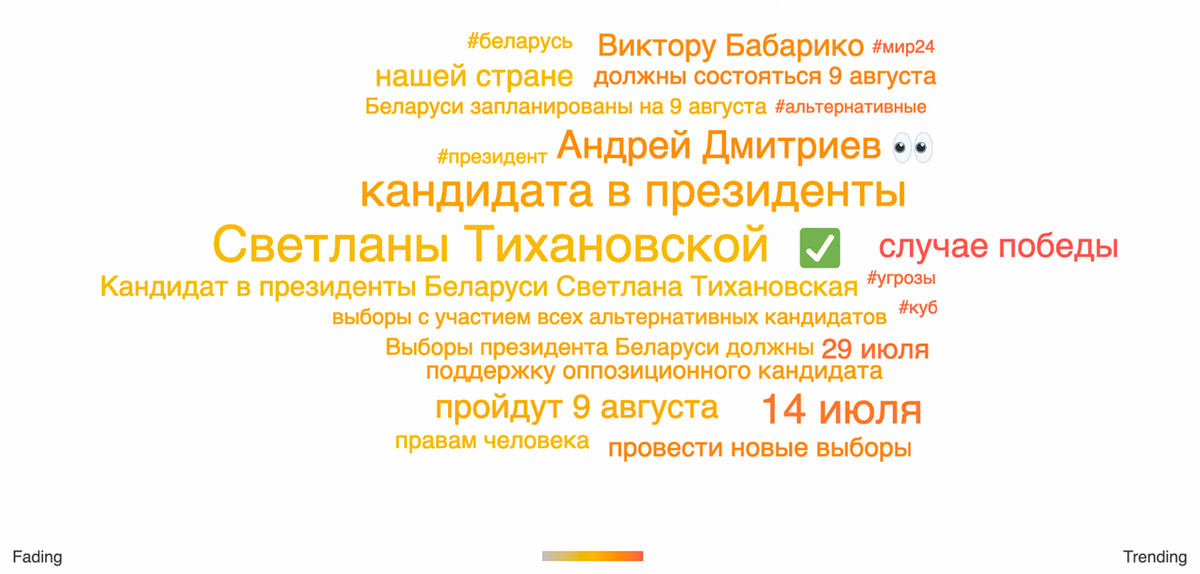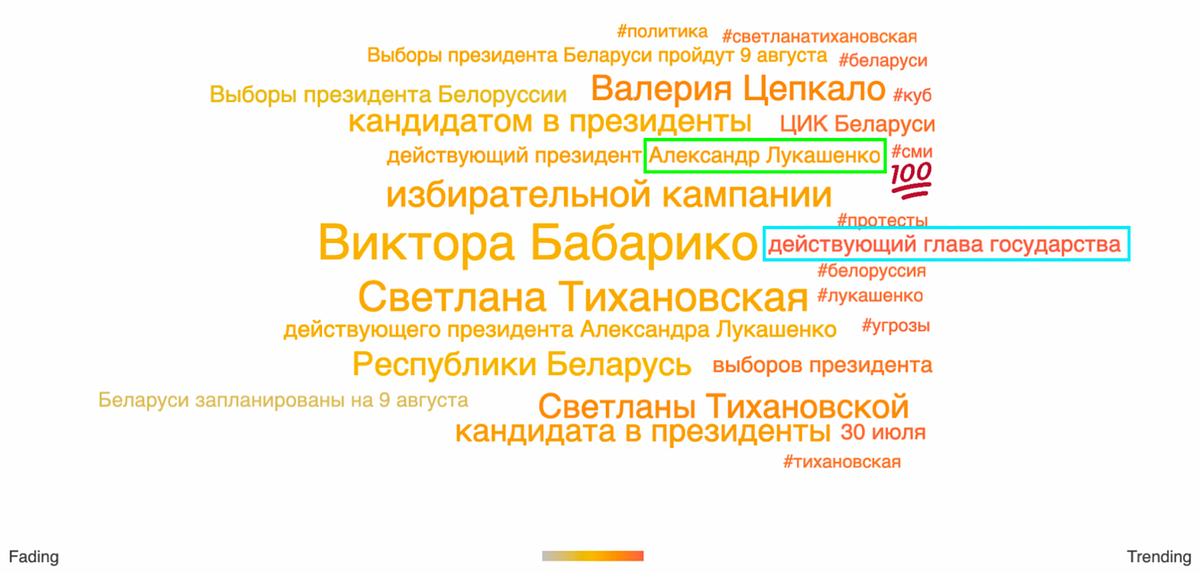Aleksander Lukashenko’s absent election campaign in Belarus
Despite increasing support for opposition candidates,
Aleksander Lukashenko’s absent election campaign in Belarus

Despite increasing support for opposition candidates, the Belarusian president has made little effort on the campaign trail

Aleksander Lukashenko, the current president of Belarus, has conducted almost no reelection campaigning for the elections scheduled for August 9, 2020. While he is still in charge of the country and has a strong media presence as its president, he has skipped televised debates and meetings with voters, instead sending representatives on his behalf.
The elections on August 9 could potentially mark a shift for Belarus both domestically and internationally, as well as the political situation in Eastern Europe in general. Lukashenko has been in power for 26 years, and a loss would very likely alter the country’s relationship with Russia. Given the frequently contentious relationship Russia has with many of its direct neighbors, especially those that are members of NATO, losing Lukashenko to a popular movement would complicate Russia’s plan to join Belarus in closer economic and geopolitical union.
The United Nations previously qualified the 2015 Belarus elections as “neither free nor fair,” and there is a significant chance that the results will be falsified again, especially during the preliminary voting that started on August 4. Most political analysts believe that Lukashenko will formally win these elections, but there is little doubt that he has lost public support. His crashing popularity has in turn all but destroyed his legitimacy to represent Belarus in talks with Russia, which wants closer economic integration with Belarus, and with the European Union, which wants Lukаshenko to stop political repression.
There are no independent political opinion polls or approval ratings in Belarus, as all such research agencies need to be accredited by Belarus authorities, but Lukashenko’s aloof attitude in which he positions himself as an exceptional candidate is not new. What is new, though, is his declining public support in favor of “anyone except Lukashenko.” The DFRLab has previously reported on organic grassroot digital campaigns against Lukashenko and in favor of emerging opposition leaders Viktor Babariko, Valery Tsipkalo, and Sergey Tihanovsky. All three are now represented by Tihanovsky’s wife, Svetlana Tsikhanovskaya, who is smashing attendance records at her campaign rallies.
While Lukashenko has not participated in television debates ever since he was elected in 1994, this is the first year he has not actively participated in public campaigning. He also repeatedly postponed his annual speech to the Belarusian nation. On August 4, he briefly broke his silence to release a statement on importance of political stability in Belarus in the spirit of maintaining good international relationships with Russia and China.
Lukashenko missing out online
Lukashenko had almost no online presence as a candidate for the past two months. A review of trending topics including keywords “Belarus,” “president,” and “elections” in all Russian-language noun cases across social media, news, and forum platforms since June 1, 2020 did not contain Lukashenko’s name, according to the results of a search conducted using the social media monitoring tool Brandwatch. (The DFRLab refrained from searching in Belarusian, as Lukashenko stifled the language in the 1990’s in favor of Russian. It is now mostly used by opposition figures and their supporters, so a search using it would have extreme built-in bias.)

The most highlighted topics were “Svetlana Tsikhanovskaya,” Lukashenko’s main rival for the presidency; “president candidate;” “July 14,” the day of the most recent violent protest oppression; and “Andrey Dmitriev,” another presidential candidate who ran presidential campaigns for other opposition candidates in 2010 and 2015.
The word cloud of trending topics for a similar search on Brandwatch that contained keyword queries for “Belarus,” “president,” “elections,” and “Lukashenko” did not show Lukashenko’s name in a prominent position. The mention volume of his name was relatively small, as seen in the green box below. Lukashenko was mentioned indirectly in an emerging trending topic as “the acting head of the state” (“действующий глава государства,” in the blue box), but the mention volume for it was also small.

The most relevant trending topics for search that contained Lukashenko’s name were “Svetlana Tsikhanovskaya,” “Viktor Babarioko,” and “Valery Tsipkalo.” Babarioko is the former head of the Russian-owned commercial bank Belgazprombank; he announced his candidacy for president but was subsequently detained on financial fraud charges. Tsipkalo is the former Belarussian ambassador to the United States and Mexico, as well as the creator of the Belarus Hi-Tech Park; he also declared his candidacy for the presidency, which the Belarusian government rejected, leading to his recent fleeing to Russia in fear of further political persecution by Lukashenko.
Ignoring the race
Open source evidence suggested that Lukashenko is mostly ignoring the race for president. The DFRLab did not identify any centralized online campaign advocating for Lukashenko.
He did not take time off from his current presidential duties for campaigning and is traveling around the country, meeting military units, opening hospitals, and visiting factories — all standard events for a head of state but not of a presidential candidate. On one of his business trips while visiting a wheat field in Minsk region, he said, “Elections are elections, but everyone wants to eat. Therefore, we need to focus here [on wheat production]. Elections are secondary.”
Meanwhile, this is the first time Lukashenko has had no policy platform as a candidate. He previously released platforms in 2001, 2006, 2010, and 2015, as published by SB.by, a media outlet that is part of media holding Belarus Segodnya (“Belarus Today”), which belongs to the president’s administration.
Belarus officials advocate for Lukashenko
Every presidential candidate receives free airtime on state television channel Belarus 1 to present their election platform and debate with other candidates. Lukashenko refused to use the airtime as allotted. In most of the recent debates, Oleg Gaidukevich, a member of parliament, volunteered to represent Lukashenko.
Lukashenko has also not taken many opportunities to participate in public rallies. The Central Election Commission of Belarus published a count of sanctioned public gatherings by each president candidate, with Lukashenko’s team reporting 1,241 events to Tsikhanovskaya’s 1,998. Additionally, Tsikhanovskaya’s events are beating attendance records around Belarus and are widely covered on social media. Conversely, there are very few open source mentions of Lukashenko events and, when there are, Lukashenko is often represented by a surrogate public official.
For instance, on August 2, there was a public event in support of Lukashenko in Pinsk, at which Tatyana Lugina, whom Lukashenko previously entrusted to represent Belarusian light industry, served as his proxy. Similarly, Aleksandr Lyahov, the director of state-owned oil company Belarusneft, represented Lukashenko when meeting people in Oktyabrsky and Volosovichi in the Gomel region on July 24. Finally, Yelena Bogdan, Lukashenko’s deputy minister for health, campaigned for Lukashenko during her vacation in Goncevichi on July 27.
Lukashenko has no visible centralized election campaign online, a yawning chasm his opposition is filling. Additionally, the lack of an electoral platform, his repeated postponement of an annual national address, and delegation of voter outreach to surrogates suggests either arrogance and aloofness — and an anticipation of victory in the face of significantly diminished popularity. Or perhaps it is fear and confusion, given his poor handling of the COVID-19 crisis and the emergence of strong opposition candidates. These factors have suddenly worsened his chances to win elections without interference on his part. The 2020 Belarusian presidential election could mark a turning point in Belarus and for eastern Europe, as a loss from Lukashenko would signal a step toward democracy in one of the region’s most persistent autocracies.
Nika Aleksejeva is a Research Associate, Baltics, with the Digital Forensic Research Lab.
Follow along for more in-depth analysis from our #DigitalSherlocks.

